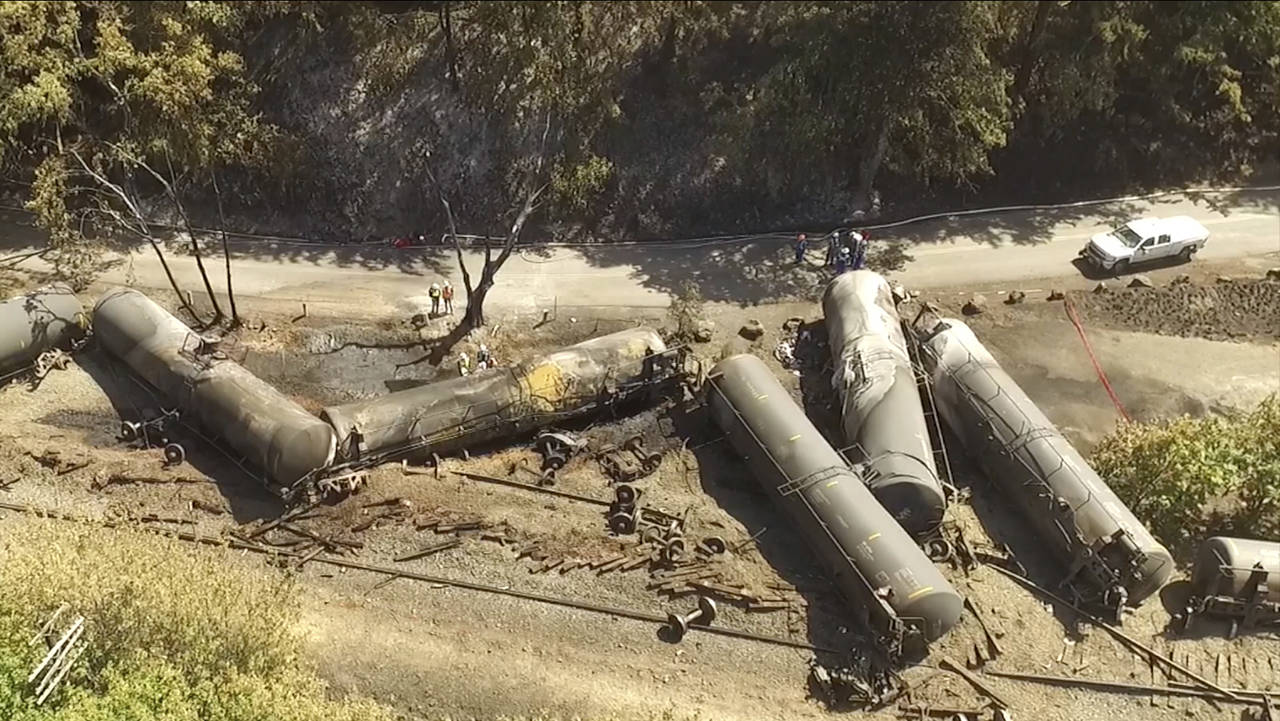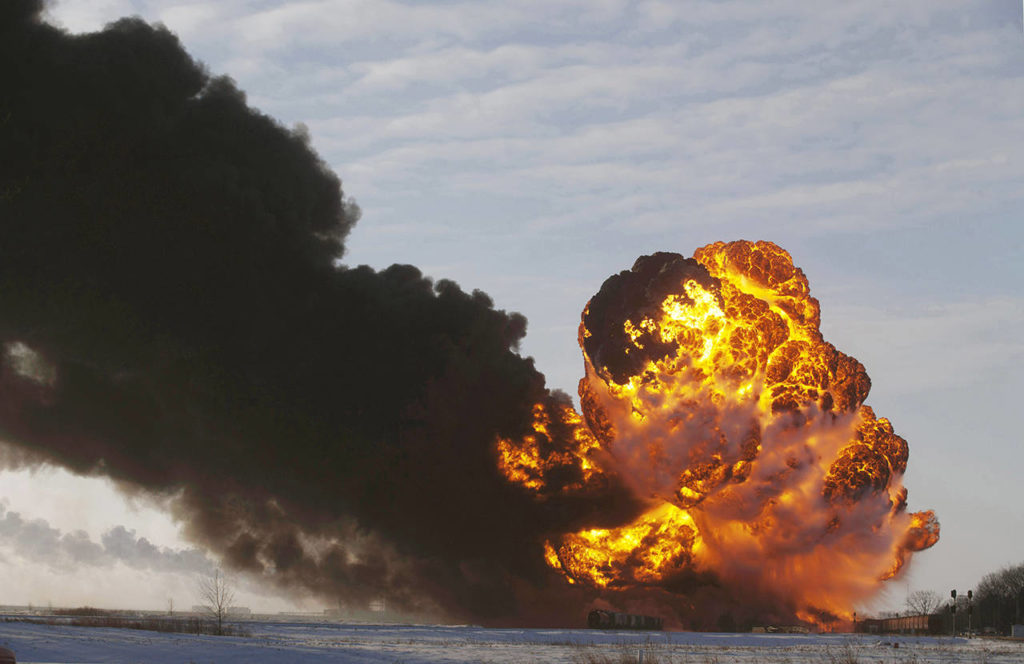By Matthew Brown / Associated Press
BILLINGS, Mont. — The Trump administration miscalculated potential damages from train derailments when it canceled an Obama-era rule requiring the installation of more advanced brakes by railroads hauling explosive fuels, The Associated Press has found.
A government analysis used by the administration to justify the cancellation omitted up to $117 million in estimated future damages that could be avoided by using electronic brakes. The error could stoke renewed criticism from supporters of the rule who say the analysis was biased.
Department of Transportation officials acknowledged the mistake after it was discovered by the AP during a review of federal documents, but said it does not change their decision not to install the brakes.
Safety advocates, transportation union leaders and Democratic lawmakers oppose the administration’s decision to kill the brake rule, which was included in a package of rail safety measures enacted in 2015 under President Barack Obama following dozens of accidents by trains hauling oil and ethanol in the U.S. and Canada.
The deadliest happened in Canada in 2013, when an unattended train carrying crude oil rolled down an incline, came off the tracks in the town of Lac-Megantic and exploded into a massive ball of fire, killing 47 people and obliterating much of the Quebec community’s downtown. There have been other fiery crashes and fuel spills in Alabama, Oregon, Montana, Virginia, West Virginia, North Dakota and Illinois.
North Dakota wreck
After the brake rule was enacted, lobbyists for the railroad and oil industries pushed to cancel it, citing the high cost of installing so-called electronic pneumatic brakes and questioning their effectiveness.
Unlike other systems where brakes are applied sequentially along the length of a train, electronic pneumatic brakes, or ECP, work on all cars simultaneously. That can reduce the distance and time a train needs to stop, and cause fewer cars to derail.
“These ECP brakes are very important for oil trains,” said Steven Ditmeyer, a rail safety expert and former senior official at the Federal Railroad Administration. “It makes a great deal of sense: All the brakes get applied immediately, and there would be fewer cars in the pileup.”
Under Obama, the Transportation Department determined the brakes would cost up to $664 million over 20 years and save between $470 million and $1.1 billion from accidents that would be avoided.
The Trump administration reduced the range of benefits to between $131 million and $374 million. Transportation department economists said in their analysis that the change was prompted in part by a reduction in oil train traffic in recent years, which meant there would be fewer derailments.
The transport of crude on U.S. railroads peaked in 2014 when 540,000 tank cars shipped. That fell to about 210,000 carloads last year, most of it from the Bakken oil patch of North Dakota and Montana, according to industry figures.
But in making their calculations, the economists left out the most common type of derailments in which spilled and burning fuel causes property damage but no mass casualties, the AP found. Equipping fuel trains with electronic brakes would reduce damages from those derailments by an estimated $48 million to $117 million, according to Department of Transportation estimates that were left out of the administration’s final tally.
Including the omitted benefits reduces the net cost of the requirement to as low as $63 million under one scenario laid out by the agency.
Transportation spokesman Bobby Fraser said the omission was unintentional and would not have changed September’s decision to cancel the electronic brake requirement. Under the administration’s analysis, the cost of the brakes would have outweighed the benefits even when considering estimated damages from derailments that were left out of the original findings.
However, excluding those potential damages means the difference between costs and benefits would have been much narrower.
A 2015 act of Congress mandated that the Department of Transportation repeal the braking requirement if an analysis showed more costs than benefits. Fraser said a correction to the agency’s findings will be published to the federal register, but the repeal will stand.
“With the correction, in all scenarios costs still outweigh benefits,” Fraser said. “Therefore, the outcome … would not have changed.”
The Association of American Railroads declined comment on the agency’s cost benefit calculations. Spokeswoman Jessica Kahanek said the move to rescind the Obama rule was in line with the requirements set forth by Congress.
John Risch, national legislative director for the International Association of Sheet Metal, Air, Rail and Transportation Workers, said electronic brakes are overdue and would have prevented some accidents, including the deaths at Lac-Megantic.
He added that the omission of some derailments from the government’s findings further tilted a study that was already flawed.
“The study was corrupt to begin with,” Risch said. “We are using a 120-year-old technology with mechanical brakes. They’ve come to the peak of what you can do with them.”
Talk to us
> Give us your news tips.
> Send us a letter to the editor.
> More Herald contact information.



























